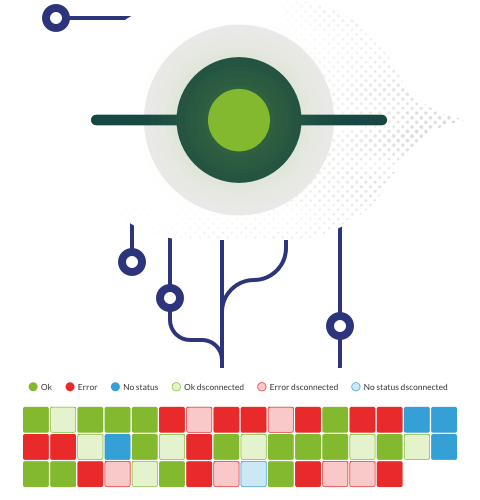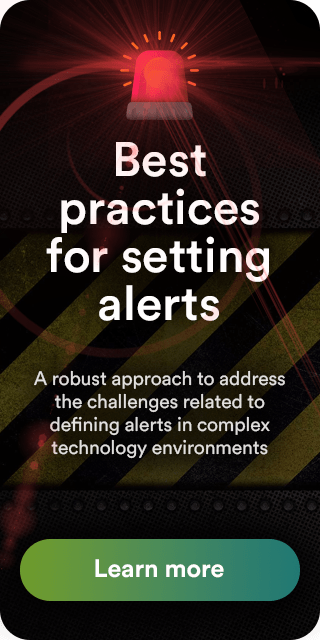We apologize in advance for this extremely freaky reference: If in the well-known science fiction saga Foundation there was a duty to collect all the information of the galaxy to save it, at Pandora FMS we have assigned ourselves the task of making a glossary worthy enough with all the “What are” and the “What is” of technology. And today, without further delay or freakiness, it’s time to define the acronyms: BYOD, BYOA, BYOT.
* Warning to (very) lost sailors: This “Byo-” has NOTHING to do with that other prefix element, “Bio”. Thank you. Get back to your beloved diet
BYOT (Bring your own technology)
That means indeed: “Bring your own tech from home, kid”. This is what BYOT means. A policy that allows employees to bring their own electronic devices, personal ones, from home to work.
This has advantages even if you don’t imagine it. And the top companies each give their distinctive approach to implementing such a policy. Some offer employees remuneration to purchase such technology. Other companies think better of it and expect their employees to put up with half or all of the expenses. Some even spend the money but then they demand for employees to pay for some services separately, such as phone service or data…
In any case, no matter how you buy your new devices or whoever pays for the Internet that month, if the device is connected to a corporate network, a highly professional IT department must secure and manage the device.
BYOD (Bring your own device)
Correct. You have translated well: “Use your own device from home, kid”. This term refers again, although on a different scale, to the tendency of employees to use personal devices to work and connect to their company’s networks, access their systems or relevant data. You know what we mean when we talk about “personal devices”… your smartphone, your laptop, your tablet or, I don’t know, your 4-gigabyte USB.
The truth is that this rings a bell, companies, and especially since this terrible pandemic, now support teleworking. BYOD is here, more and more, working from home, maintaining a flexible schedule, including trips and urgent departures, in the middle of the morning, to get a Coke or to pick up your kid from school.
As it could not be otherwise, for the directives of your company the security of your BYOD is a crucial issue. Because for you it can be a whole morale boost, even on productivity, the fact of working with your trustworthy device, but if the IT department does not take care of checking it before, the access of your personal devices to the company network can raise serious security concerns.
The best thing in this case is to establish a policy where it is decided whether the IT department is going to protect personal devices and, if so, how it is going to determine the access levels. Approving types of devices, defining security policies and data ownership, calculating the levels of IT support granted to BYOD… Then informing and educating employees on how to use their devices without ultimately compromising company data or networks. Those would be the steps to follow.
Studies show that there is higher productivity for employees using BYOD. Nothing less than a 16% increase in productivity in a normal workweek, for those who work forty hours. It also increases job satisfaction and the fact that new hires decide to stay through a flexible work arrangement. Employee efficiency is higher due to the comfort and confidence they have in their own devices. Technologies are integrated without the need to spend on new hardware, software licenses or device maintenance…
Everything looks wonderful, although there are also certain disadvantages as usual. Data breaches are more likely due to theft or loss of personal devices, as well as employee dismissal or departure. Mismanagement of firewalls or antivirus on devices by employees. Increased IT costs, and possible Internet failures.
BYOA (Bring your own application)
And what’s that? BYOA is basically the tendency of employees to use third-party applications and Cloud services at work.
As we know, mobile devices, owned by employees, have personal-use applications installed. However, they access these applications and different services through the corporate network. Well, this is the aforementioned BYOA.
There are benefits, of course. All those who may be listening to Spotify or using your own Google Drive without paying directly for the Internet. However, the higher the BYOA, like the higher BYOD and BYOT, the bigger the security holes in your organization. No one suffers more than a company’s IT department when it comes to thinking about how vulnerable corporate data can be. Especially when they are stored in the Cloud.
Conclusions
BYOT, BYOD, BYOA solutions are very efficient in the way an employee works. High morals, high practicity, and high productivity. However, well, they do pose certain cracks in the corporate network. Sensitive data and unsupported/unsecured personal devices, sometimes are not the best combination.
“BYO” products have advantages but they need a seasoned, conscious, proactive IT department, always protected by management policies of BYOT, BYOD, BYOA.
If you have to monitor more than 100 devices, you may also enjoy a FREE 30-day Pandora FMS Enterprise TRIAL. Installation in Cloud or On-Premise, you choose !! Get it here.
Last but not least, remember that if you have a reduced number of devices to monitor, you can use the Pandora FMS OpenSource version. Find more information here.
Do not hesitate to send us your questions. Pandora FMS team will be happy to help you!

Dimas P.L., de la lejana y exótica Vega Baja, CasiMurcia, periodista, redactor, taumaturgo del contenido y campeón de espantar palomas en los parques. Actualmente resido en Madrid donde trabajo como paladín de la comunicación en Pandora FMS y periodista freelance cultural en cualquier medio que se ofrezca. También me vuelvo loco escribiendo y recitando por los círculos poéticos más profundos y oscuros de la ciudad.
Dimas P.L., from the distant and exotic Vega Baja, CasiMurcia, journalist, editor, thaumaturgist of content and champion of scaring pigeons in parks. I currently live in Madrid where I work as a communication champion in Pandora FMS and as a freelance cultural journalist in any media offered. I also go crazy writing and reciting in the deepest and darkest poetic circles of the city.


















